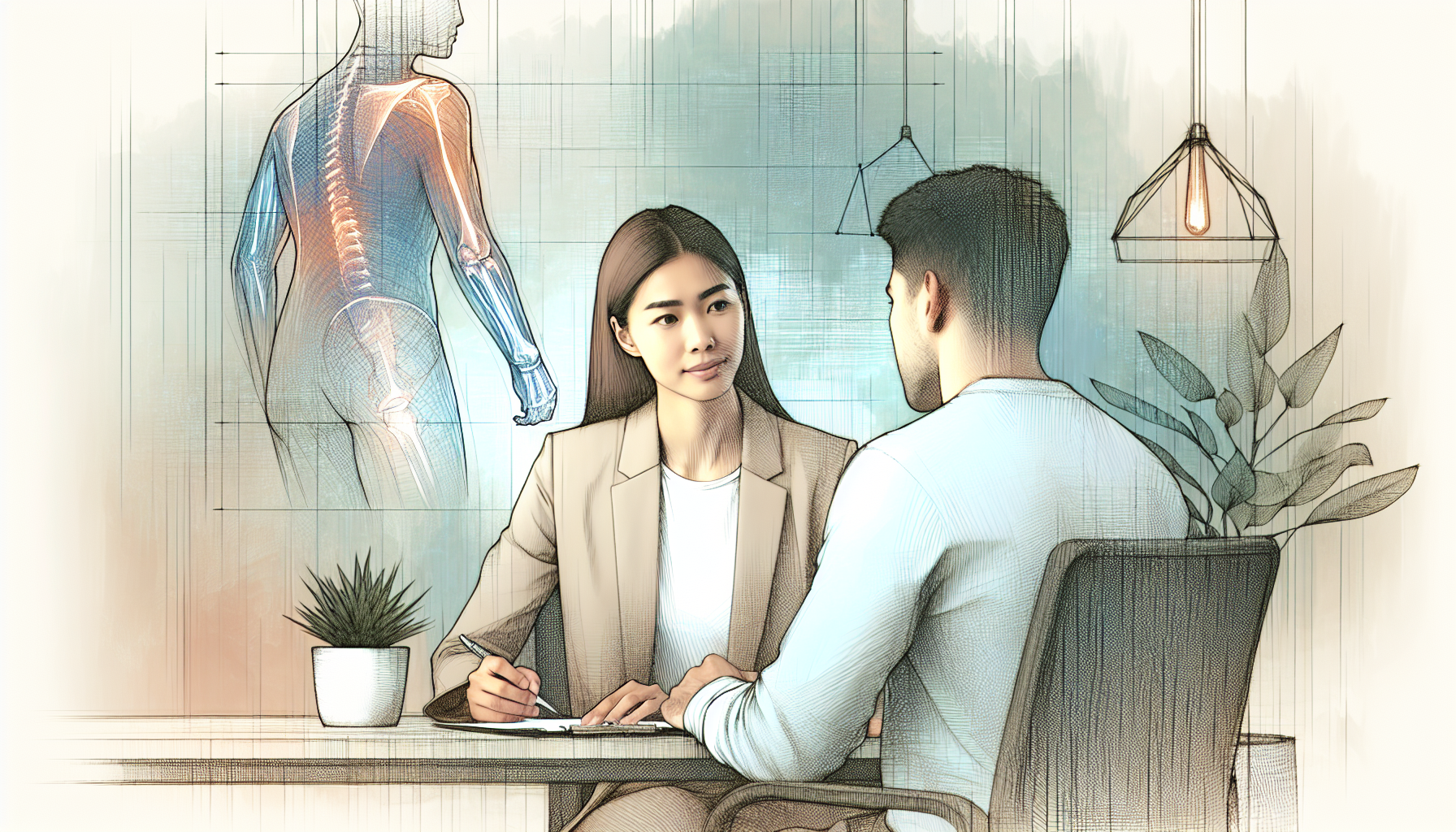
The AI Revolution in Legal Defense
The legal landscape is on the brink of a paradigm shift, ushered in by the advent of artificial intelligence (AI). Modern technologies are transforming the traditional framework of legal assistance, positioning AI as an indispensable tool in the paralegal’s arsenal. This forward-thinking approach enhances efficiency, precision, and overall effectiveness. As the modern paralegal’s secret weapon, AI’s role in reshaping defense strategies, particularly in drug charge cases, is monumental.
Leveraging AI, specifically through applications like ChatGPT, is not merely futuristic but a present-day necessity. The benefits range from streamlined legal research to nuanced document drafting, all while adhering to rigid ethical standards. Thus, embracing AI in legal defense amplifies a paralegal’s capability to develop robust strategies that effectively counter drug-related charges.
Demystifying ChatGPT: A Primer for Paralegals
Understanding the foundational elements of ChatGPT and Large Language Models (LLMs) is crucial for paralegals aiming to integrate this technology into their workflow.
Understanding LLMs: Breaking Down the Basics
Large Language Models, such as ChatGPT, leverage vast datasets to predict and generate human-like text. These models are trained on diverse information, enabling them to produce coherent and contextually relevant outputs. Recognizing the underlying mechanics helps paralegals harness the full potential of ChatGPT, making legal processes more streamlined.
ChatGPT Under the Microscope: Capabilities and Limitations
ChatGPT excels in various tasks—legal research, drafting motions, summarizing documents, and more. However, its capabilities come with limitations. It’s vital to approach its outputs critically, validating facts and ensuring the generated text aligns with the specific legal context. This balanced understanding enables paralegals to utilize ChatGPT effectively without over-reliance, maintaining a prudent approach to AI-assisted defense strategies.
Also read:
Crafting Effective Prompts for Legal Research
Formulating the right prompts is pivotal for extracting valuable insights from ChatGPT. The quality of the input directly impacts the output, determining the relevance and applicability of the information generated.
The Art of Questioning: How to Ask the Right Queries
- Be Specific: Tailor your questions to address the precise legal issue at hand. For instance, “What are the common defenses against drug possession charges?” instead of a vague query.
- Contextual Details: Provide background information to contextualize the query, such as “Considering a client charged with first-time drug possession, what precedents could be advantageous?”
Advanced Prompt Engineering: Tailoring Questions to Uncover Nuances
Crafting prompts that delve deeper into nuances can yield more precise answers. For instance, “Analyze the implications of the Fourth Amendment in the context of unlawful search and seizure related to drug charges” or “Summarize key rulings on prosecutorial misconduct in drug cases.” Such advanced prompts guide ChatGPT to provide comprehensive insights that inform strategy development effectively.
Avoiding Common Pitfalls: What Not to Ask and Why
- Avoid Ambiguity: Vague questions lead to generic answers. Specify the legal context explicitly.
- Double-check Legal Advice: Always validate AI-generated counsel with human expertise to ensure accuracy.
- Be Conscious of Privacy: Never input confidential case details to avoid breaches of client confidentiality.
Also read:
Building a Rock-Solid Defense: Strategies & Techniques
With well-crafted prompts and a clear understanding of ChatGPT’s capabilities, paralegals can leverage AI to build an unassailable defense in drug charge cases.
Fact-Finding Missions: Using ChatGPT for Case-Specific Information
Engage ChatGPT in thorough fact-finding missions to gather case-specific information. Queries such as “Identify common forensic challenges in drug possession cases” or “Outline procedures for challenging chain of custody in drug-related evidence” provide targeted insights, aiding the preparation of a fortified defense.
Legal Precedents: Retrieving Relevant Case Law and Statutes
Utilize ChatGPT to identify pertinent case law and statutes. Examples include, “List notable cases where drug possession charges were dismissed due to unlawful search” or “What statutes govern controlled substance possession in [State]?”. This approach ensures the defense is backed by robust legal precedents, essential for persuasive argumentation in court.
Scenario Simulation: Exploring Hypothetical Outcomes
Scenario simulations can predict potential outcomes, guiding strategic decisions. Prompt ChatGPT with hypothetical scenarios like, “Predict possible outcomes if evidence was obtained without a warrant in a drug possession case” or “Assess the likelihood of sentence reduction in plea deals for first-time offenders.” These insights help paralegals anticipate courtroom dynamics and prepare accordingly.
Also read:
Enhancing Document Drafting and Review
Document drafting and review are critical in legal defense. ChatGPT facilitates these tasks, enhancing both the initial drafting process and subsequent refinement stages.
Drafting Mastery: Creating Initial Drafts with ChatGPT
Kickstart the drafting process by generating initial drafts with ChatGPT. Prompts like “Draft a motion to suppress evidence in a drug possession case” or “Compose an opening statement for a drug charge defense” can save valuable time, providing a solid foundation for further refinement.
Critical Review: Polishing and Refining Documents
Subsequent review and refinement ensure the document aligns with legal standards and specific case needs. Use ChatGPT to enhance clarity and coherence. For instance, “Polish this argument section for better flow” or “Revise this brief to emphasize key legal points.”
Efficient Summarization: Condensing Long Texts into Key Points
ChatGPT excels at summarizing lengthy texts. Prompts like “Summarize this deposition transcript highlighting major points” or “Condense this legal brief into a one-page summary” can distill comprehensive documents into manageable insights, aiding quicker comprehension and analysis.
Also read:
Client Communication: Making the Complex Comprehensible
Clear client communication is paramount. ChatGPT aids in demystifying legal jargon and facilitating straightforward dialogue.
Simplifying Legal Jargon: Translating Complexity
Transform complex legal terms into layman’s language effortlessly. Prompts such as “Explain probable cause in simple terms” or “Describe the legal process of arraignment to a client” help bridge the gap between legal experts and clients.
Automated Responses: Efficiently Handling Common Queries
Automate responses to frequent client inquiries, enhancing efficiency. For example, “Draft a standard response to queries about court appearances” or “Create a template email for explaining bail conditions.” This ensures consistent and accurate client communication.
Also read:
Ethical Considerations and Professional Responsibility
While AI offers remarkable advantages, it’s vital to navigate ethical considerations and professional responsibilities with care.
- Responsible Use: Always ensure AI-generated content is checked for accuracy and relevance.
- Confidentiality: Uphold strict privacy standards, never disclosing sensitive case information in prompts.
By adhering to these principles, paralegals can responsibly integrate AI into their practice.
Also read:
Concluding Thoughts: The Paralegal’s AI-Powered Future
Reflecting on the transformative role of AI in legal practices underscores its potential. By understanding and leveraging ChatGPT, paralegals can significantly enhance their capabilities, paving the way for innovative and effective defense strategies in drug charge cases.
Looking ahead, continuous advancements in AI promise even more sophisticated tools, furthering the integration of technology in legal defenses and redefining the paralegal’s role in the justice system. Embrace this evolution, and the future of legal defense will indeed be AI-powered–efficient, precise, and comprehensive.


